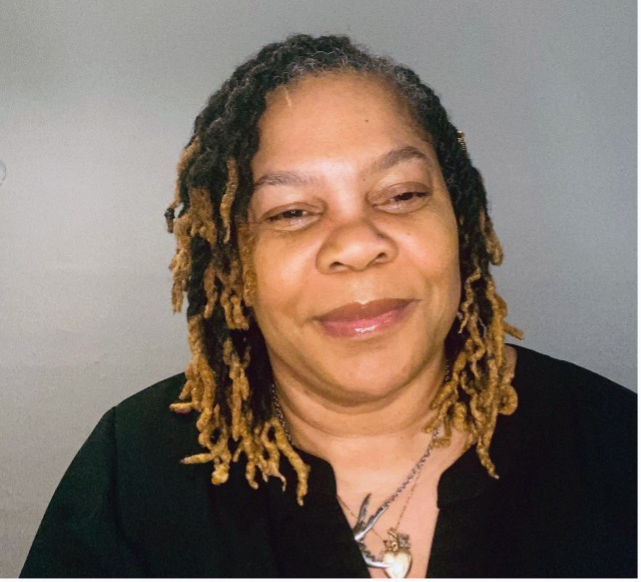Black History Month:
Why Black Mental Health Matters
By Sheila Turner
Despite efforts in awareness and advocacy, the mental health needs of Black people remain under-addressed. From race-based and historical traumas to systemic inequalities, various factors contribute to the challenges faced by African American and Black individuals in navigating their mental health journeys. Let us reflect on why Black mental health matters and why it is essential to prioritize it.
First, we must understand the historical context. The legacy of slavery, segregation, and ongoing racial discrimination has left scars on the spirit of the Black communities. From the brutality of slavery, Jim Crow laws, and the continued impact of systemic racism, the Black experience in America is prone to psychological stressors that can manifest in various forms of mental distress. These historical injustices have intergenerational consequences, impacting family dynamics, cultural norms, and perceptions of value (e.g., self-worth and confidence).
Furthermore, systemic inequalities exacerbate the mental health disparities experienced by Black individuals. Mental health care remains a significant obstacle, with Black communities experiencing a disproportionately higher rate of poverty, inadequate insurance coverage, and limited access to quality healthcare. The cultural stigma surrounding mental illness persists in the Black community, resulting in a decrease in support-seeking behaviors and feelings of shame or weakness, though it is improving.
The repercussions of neglecting Black mental health are severe and widespread. Untreated mental health conditions can result in a multitude of adverse outcomes, including higher rates of suicide, substance abuse, incarceration, and chronic health conditions. Additionally, the economic impact of untreated mental illness in the Black community is significant, with healthcare costs increasing existing disparities.
To address these issues, a multifaceted approach is needed. There must be a collaborative effort to address mental illness in the Black community. Culturally competent, mental health services that recognize and respect an individual’s unique experiences and needs are essential. Increasing access to affordable and comprehensive mental health services, including counseling and psychiatric services, is necessary. In addition to culturally competent mental health services, we must ensure that African American and Black students are afforded opportunities to explore mental health fields because representation matters, especially when seeking treatment. This goal encompasses access to affordable programs and assistance with licensure. Recognizing that many of these people are first-generation students who may not comprehend how to navigate post-secondary education.
Additionally, addressing the social factors of health that disproportionately affect Black communities is crucial. These factors include efforts to combat systemic racism, promote economic empowerment, and provide equitable access to education, housing, and employment opportunities. By addressing the root causes of mental health disparities, we can create a more supportive and inclusive environment where Black individuals can thrive emotionally, mentally, and physically.
Lastly, we must focus on Black mental health as a matter of social justice and human dignity. By listening to the voices of Black mental health advocates, challenging existing systems of oppression, and fostering a culture of compassion and understanding, we can work toward a future where ALL individuals can have mentally healthy lives. It’s time to recognize that Black mental health matters – not just during Black History Month, but every day of the year.
Learn more about the Black Student Association by emailing BSA@fielding.edu.
About Sheila Turner– BSA Secretary

Sheila Turner
Sheila Turner is a first-generation, fifth-year Applied Psychology doctoral student at Fielding. She holds a master’s degree in criminal justice with a Forensic Psychology specialty and recently completed her master’s degree in psychology. Sheila is also an undergraduate psychology adjunct instructor at Columbus State Community College.
After working in the private and public sectors and raising her family, Sheila returned to college to finish her education. Since being at Fielding, she has presented at various conferences domestically. Sheila’s research focuses on youth, trauma, and identifying alternatives to incarceration for youth. She is interested in implementing mental health treatment strategies to prevent and reduce adolescent incarceration and recidivism rates, especially for marginalized youth.
Sheila currently functions as the Black Student Association Secretary. Sheila, along with several members of the Black Student Association, is a recipient of the 2 022 Stuart C. Tentoni Outstanding Professional Development Program Award. She is also a member of the American Psychology Association of Graduate Students, the American College of Forensic Psychology, and the Ohio Psychological Association of Graduate Students. Sheila also serves as the Student Caucus Campus Representative for the Association for Psychological Science.
Join Over 7,500 Fielding Alumni Located Around The World!
Change the world. Start with yours.™






Get Social